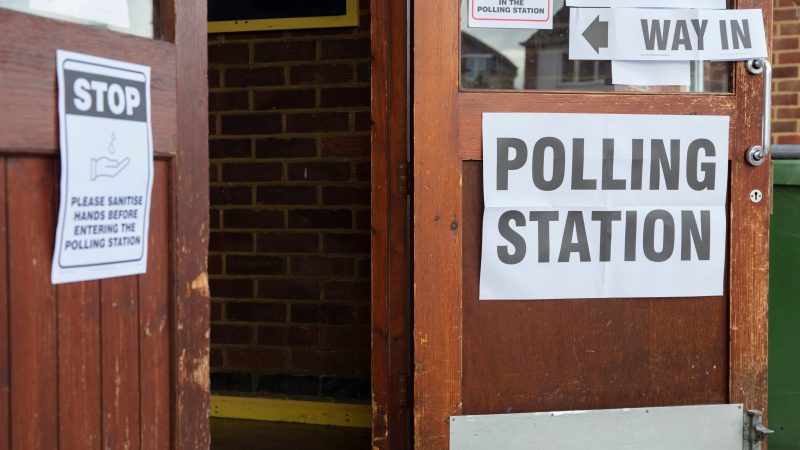
You can tell it’s an election year. Usually, our regular voter intention poll at Savanta is released without much note by Westminster. Certainly not by the wider public.
But our most recent – which showed a seven-point drop in Labour’s lead – caused something several Richter’s short of a political earthquake.
It felt like everyone, depending on their political preferences, was attempting to capitalise on or refute our poll. But that’s all noise.
The key question, longer-term, is whether Labour should be worried. And I’d suggest yes, they probably should, but not for reasons you think.
Labour should worry, but not for reasons you may think
Let’s look at what our poll actually said, and what we do and don’t know.
Labour is now on 41%, a drop of 5% from our last poll a fortnight ago. Conversely, the Conservatives have gone up two points to 29% over the same period. This is mainly notable because the last time Labour’s lead was as low as 12 points was in June 2023. But the changes are still broadly on the edges of the margins of error.
And the overwhelming majority (91%) of 2019 Labour voters say they will still vote for Keir Starmer’s party at the next general election. It looks like they can still count on one in nine 2019 Conservative and 23% of Lib Dem voters as well. That’s good going.
Broadly, Labour’s leads have remained stable for a while now, even while many of Starmer’s opponents have cried u-turn on any number of given issues. When there have been drops (as polls tend to do), they have bounced back pretty quickly.
It’s also worth saying that even in our latest poll, Labour’s majority would still be very healthy. Likely upwards of 80 seats.
More anti-Conservative than pro-Labour
“The Labour lead in this poll has dropped seven points. It presents our lowest Labour lead since June 2023.”
Political research director at Savanta @ChrisHopkins92 adds that ‘this implies that there’s possibly some movement in voter support for Labour.”https://t.co/4FESc3tc6c pic.twitter.com/BOxSSC7UwK
— Sky News (@SkyNews) February 14, 2024
If you had given Keir Starmer that option in Spring 2020, he would have bitten your hand off.
But the risk is that our results are, perhaps, the beginning of a longer-trend.
That the wider electorate’s ambivalence and lack of clarity about the Starmer project means Labour are more susceptible to attacks such as this. Our polling and focus groups have always shown that their dominant position has been more to do with an ‘anti-Conservative’ sentiment versus a ‘pro-Labour’ one.
From our polling, we don’t know clearly yet how Keir Starmer’s handling of allegations of antisemitism from Labour’s parliamentary candidates has impacted public opinion and whether this will be a long-term trend that we’ll continue to see in future polls.
Technically, our most recent poll included the timing that part of the story ‘broke’, but we shouldn’t assume that political stories such as these bleed into wider public consciousness particularly quickly. That’s if they do at all, and whether they could do significant damage to the party’s chance of success at the next election. To answer this, we’d need to see longer trends similar to this poll to draw firm conclusions.
A zero-tolerance approach to antisemitism is not often top of the list of reasons why voters say they choose Labour. But Starmer has successfully made the case that his actions in this space were a real marker of difference compared to previous leaders. He often uses it as a proof point in how the Labour Party has “changed”.
The political environment will only get more hostile
The first thing to say is that we should never read too much into one poll.
We’d want to see longer trends, including from multiple pollsters, before drawing any firm conclusions. pic.twitter.com/qJ5S4xsbtN
— Chris Hopkins (@ChrisHopkins92) February 14, 2024
The strategic worry more broadly is about how brittle Labour’s lead and wider political operation looks right now. This week should have been dominated by two significant by-election victories (still very likely) and reinforcing a broken Conservative economic model.
But instead, it’s become ultimately about Keir Starmer’s leadership style. And if this narrative continues to dominate the media, that should concern him and his advisors. The political environment is only going to get more hostile in the coming weeks and months.
But for now, Labour don’t need to be too worried. Yet.




More from LabourList
‘I spent years telling workers the law couldn’t help them – that has changed’
Josh Simons resigns as Cabinet Office minister amid investigation
‘After years of cuts, Labour’s local government settlement begins to put things right’